I would like to focus on what we tell ourselves about our bodies AND how we use healthy boundaries to teach people how to treat and talk to us regarding our bodies. What we say to ourselves AND what we let in from the outside matters.
Cool?
Cool.
It turns out you can’t hate yourself into long term health and vitality. There are plenty of studies backing this. Let’s discuss how to improve positive and healthy body image.
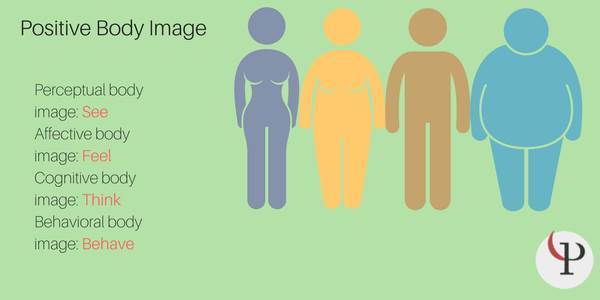
(National Eating Disorders Collaboration)
Body image is made up of 4 constructs:
- Perceptual body image: how you see your body
- Affective body image: how you feel about your body
- Cognitive body image: how you think about your body
- Behavioral body image: the way you behave as a result of your perceptual, affective, and cognitive body image
When your body image is positive, you are able to accept, appreciate, and respect your body. You won’t necessarily avoid feeling any insecurities or think your body is always bangin, but you will be able to acknowledge any insecurities for what they are and believe that your body is at the very least right for unique YOU.
There are 3 components to positive body image:
Self-esteem: valuing ourselves and believing that others appreciate us and enjoy our company.
A positive attitude: accepting our strengths and our weaknesses, and avoiding three negative attitudes:
a. Perfectionism: holding ideals or standards that are impossible (or next to impossible) to achieve.
b. Comparing: making social comparisons with others.
c. Being highly critical or judgmental: the more critical and judgmental we are of others, the more likely we are to be critical and judgmental of ourselves.
Emotional stability: maintaining a healthy connection to our thoughts and feelings while also being able to share our experiences with others.
Body image is subject to all kinds of distortions from the attitudes of one’s parents, other early experiences, internal elements like emotions or moods, and other factors. The severe form of poor body image is body dysmorphic disorder, where dissatisfaction over a slight or undetectable defect in appearance becomes a severe obsession. I will not address the pathologies as deep as some of these disorders, because that is when you seek psychological support. I always recommend working with a mental health professional, and ever more so when you have a preoccupation that is debilitating in your life.
How social media affects body image
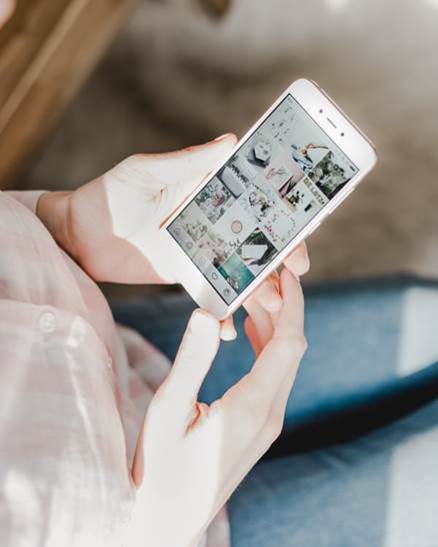
Why does physical appearance take precedent? It’s a cultural and familial thing that doesn’t deserve life. You have power and choice to control your life and your narrative. Controlling what comes into your line of sight daily matters. Social media is MAJOR. Unfollow those philosophies that aren’t supportive of a positive body image. Please let me repeat, you will not punish or hate yourself into a better body long term. The lower you feel, the worse you treat yourself with sometimes self-destructive habits (i.e. excessive drinking, eating/under-eating, etc). If snapping a selfie makes you feel worse, then avoid it. No one deserves to go through life hating the place where they live: their body.
Although the most significant effects of media on body image and self-esteem have been observed in women, men are certainly not immune to the images of the “ideal” body. Men who viewed advertisements featuring male models or actors with the muscular ideal body type were more likely to feel negative about their own bodies, and more likely to feel dissatisfied with their own muscles.
Instagram, in particular, seems to have a huge impact on how we see ourselves and our bodies. Researchers investigated the relationship between viewing Instagram pictures and mood and body dissatisfaction. Participants were shown one of three sets of images: (1) images of celebrities on Instagram, (2) images of unknown, equally attractive peers on Instagram, or (3) a set of control travel images from Instagram. Not a big shock, those who viewed the celebrity and peer images experienced a more negative mood and greater dissatisfaction with their bodies than those who viewed the travel images. What we let in matters.
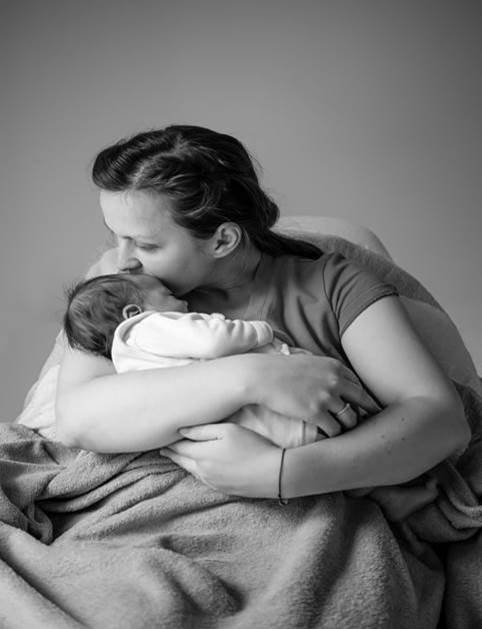
Overcoming Poor Body Image
In the midst of body image angst, people tend to forget about the body’s important utility, and it does soooooo very much for us. Think about it – holding your baby with your arms, feeling that precious bundle, smelling, seeing, tasting, and hearing glorious life things. Increasing gratitude for our vessel is a practice. Much like working out, you must practice these body-honoring thoughts DAILY. Yes daily.
Having a positive body image can help you to be healthier.
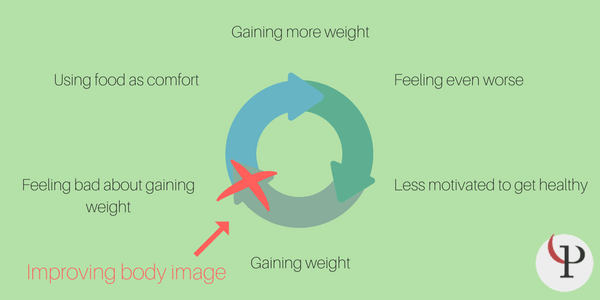
You can actually gain more weight because of poor body image. Studies show there is a link to this. I mentioned this a few times already – you cannot hate yourself to healthy. Do you want to treat yourself better when you feel like garbage about yourself? I know I don’t.
When we have a negative body image and we gain weight, we might think, “I’m so fat. I’m lazy and useless and I don’t deserve attention and happiness.”
When we have a positive body image and we gain weight, we are more likely to think something like, “Oops! I’ve gained some weight. I better work on making healthier meals and getting out more.” See the difference there?
It may be more difficult to cultivate body acceptance when you are overweight, but you can do it if you put your mind to it! Here are some ideas below:
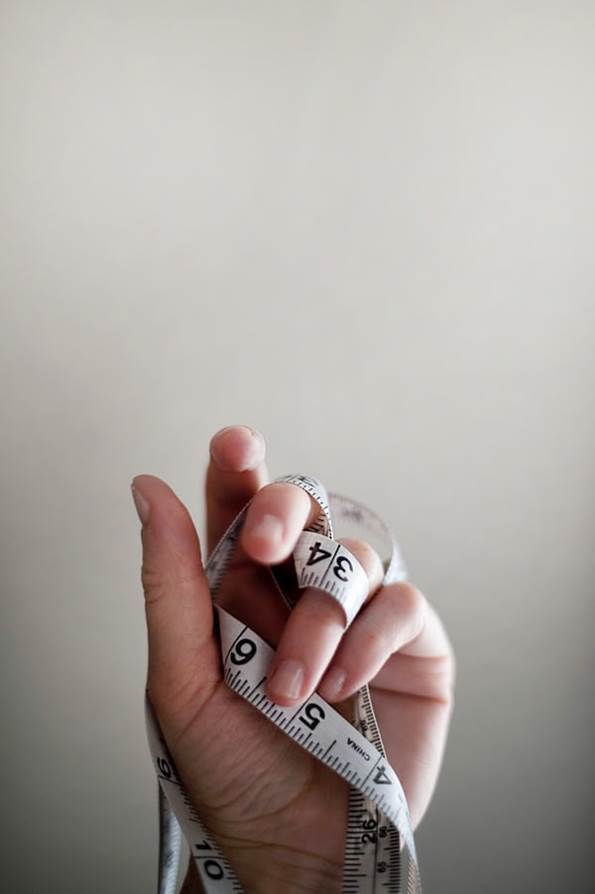
An experiment to try out regarding your environment:
- Keep track of how many times you hear someone talk about dieting or weight. Seriously count; it’s maddening.
- If someone tries to draw you into a conversation about weight or dieting, change the topic or find an excuse to leave the conversation.
- Think about what you are saying to other people and keep focused. If you find yourself talking about weight or dieting, change the topic.
- Tell other people about your personal challenge and encourage them to give it a go too.
- At the end of the week, tally up how many times you heard someone talking negatively about their body and how many times (if at all) you talked negatively about your own body.
- Consider whether you feel better about your body after a week without negative body talk. You may like to take the challenge for a second week to see if you can improve your focus.

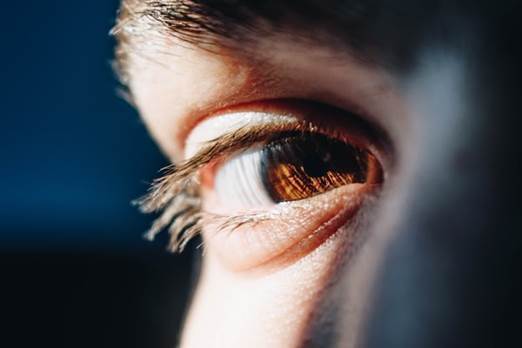
Journal this:
- What my body does for me
- What I love about my body
- What’s unique about me
- What I can do to help it stay strong and healthy
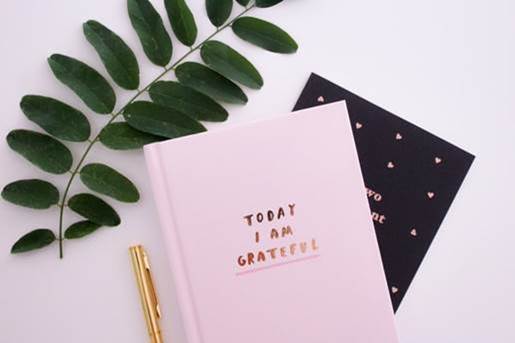
Start taking control of your perceptions by learning your thoughts and changing them to appreciate YOU. You will be unstoppable. For more resources and worksheets, see below. If you find yourself suffering, please don’t hesitate to reach out to a mental health professional.
And here’s a related segment by Studio SWEAT family member Haley (our beloved Eric’s wife) who is a master at sustainability and homeopathic recipes and lifestyle. She inspires me weekly (you simply MUST follow her on Instagram @hippiehappyhaley):
Hi all,
I’d like to chime in with some thoughts about something that I think goes hand in hand with the topic of body image: fast fashion. Fast fashion is the idea of a certain style of clothing being popular and in high demand for a short period of time, and then quickly ousted to be replaced by another. I believe that fast fashion is generally unethical, unsustainable, and unhelpful to anyone working on a positive body image. Usually, these stores that are always stocked with the latest trends rely on a workforce in developing countries that does not receive fair wages or healthy working conditions. The fashion industry is one of the largest contributors to forced labor human trafficking, utilizing sweatshops and paying nowhere near a living wage. The reason you can buy that cute top for five dollars is because someone was paid mere cents to make it. The fashion industry is also a leading contributor to waste. Every year, billions of pounds of clothing are dumped into landfills. In 2018 it was 17 million tons. All those clothes that are no longer in style need to go somewhere, right? When stores are restocking with the newest fashions, the old ones are thrown in the trash. Not a great use of resources or a very sustainable model for our planet.
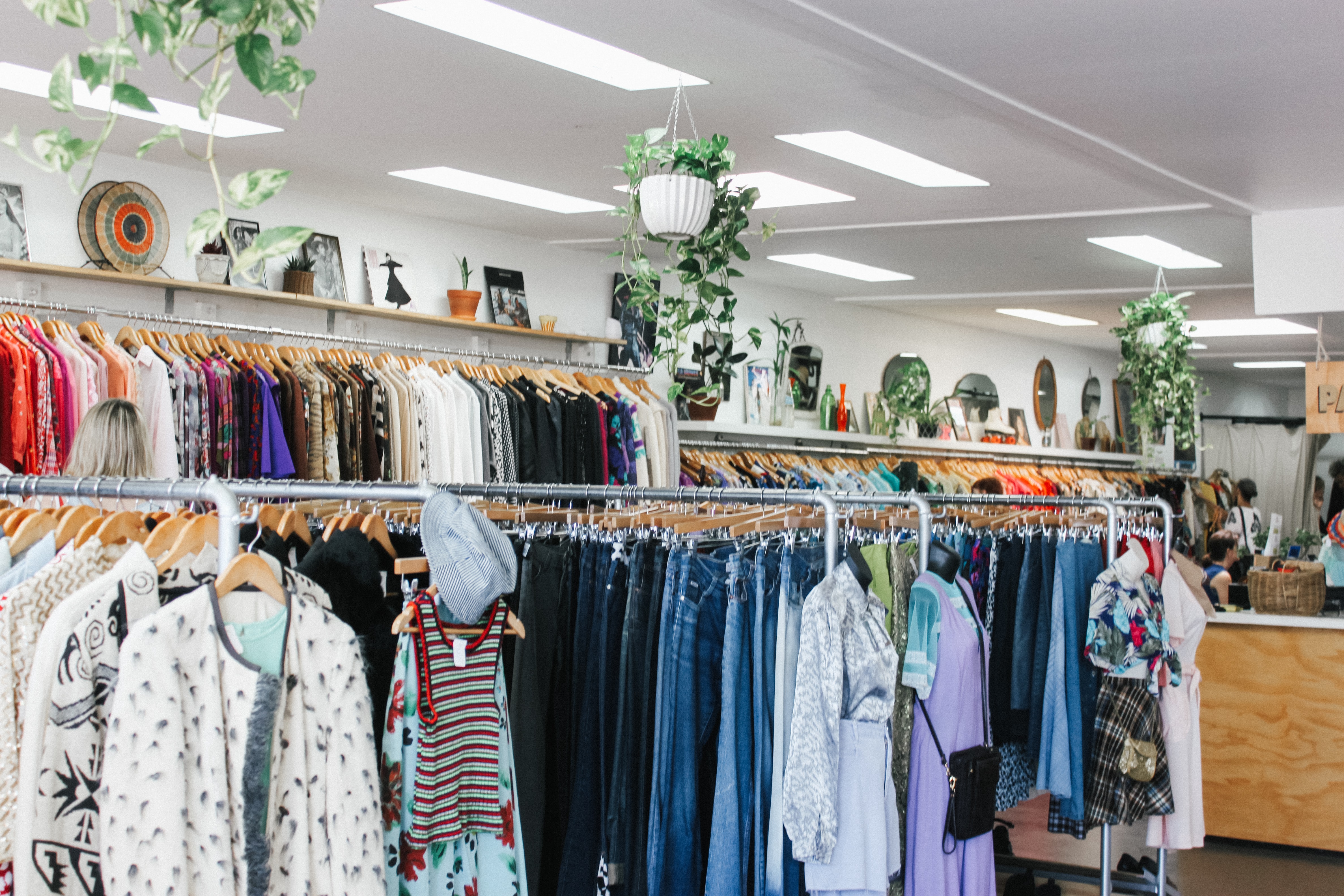
Okay, so we know that trendy fashion is not great for the people making it or the earth, but what does all this have to do with body image? The idea of keeping up with the latest clothing trends assumes that your preference for what feels cute and comfortable on your body is going to be as ever changing as these trendy tides. For most of us, that’s just not the case. If you love how you look and feel in jeans, then you may not have the same affection towards sheer flowy pants, but if you’re trying to stay in vogue then you don’t have much of a choice. Jeans may be in one season and out the next. Here’s where I find that a healthy body image is threatened by fast fashion. All humans do not feel comfortable and confident in the same kinds of clothing. We all have different styles, body types, preferences for color, pattern, material, etc. In my experience, wearing something that is on trend, but that you don’t like, is not going to promote a healthy body image. According to the fashion industry, you may be the most stylish person around, but if the material feels weird to you, you don’t like the cut, blue is not your color, or whatever, then how you view your body in that clothing will be distorted. Enter my fashion philosophy: wear what makes you feel cute and comfortable. Cute AND comfortable. I’ve donated many a shirt that I thought was beautiful on me but was itchy or tight or felt weird. Yet another problem with fast fashion for me is what makes me feel cute and comfortable is not usually on brand. Should I sacrifice my comfort and healthy body image for the sake of being on trend? No, thank you.
So, what to do about all these ethical, environmental, and body image issues that stem from the fast fashion industry? First of all, buy clothes you actually like! I don’t know about you, but I don’t want to spend my precious time, energy, and money finding and buying trendy clothes that I hate, especially when they’ll be out of style in a few months anyway. Secondly, buy clothing that is not supporting the wasteful and harmful side of the fashion industry. Remember, we vote with our dollars. Every time we buy from a store that treats their employees unfairly or has unsustainable practices, we say we’re okay with what they’re doing. If you’re not okay with it, consider buying from fair trade or ethical clothing companies. Check out www.goodonyou.eco to find some great options. Keep in mind, these companies may be more expensive than what you’re used to, and if that’s not in the budget right now take note of my third and favorite tip: buy your clothes secondhand! I absolutely adore shopping secondhand for many reasons. It’s inexpensive, keeps clothes out of landfills, does not support the fast fashion industry, and you can find super cute and unique clothing that’s already worn in and comfy. The first and most obvious option for buying secondhand is thrift stores! I love a good thrift store, but I know the lack of organization can be overwhelming for some people. You do have to dig around to find the gems, but I promise they’re in there! If thrifting isn’t your thing, I recommend checking out www.thredup.com and www.swap.com, which are sites where you can get secondhand clothing online and can easily search for sizes and styles.
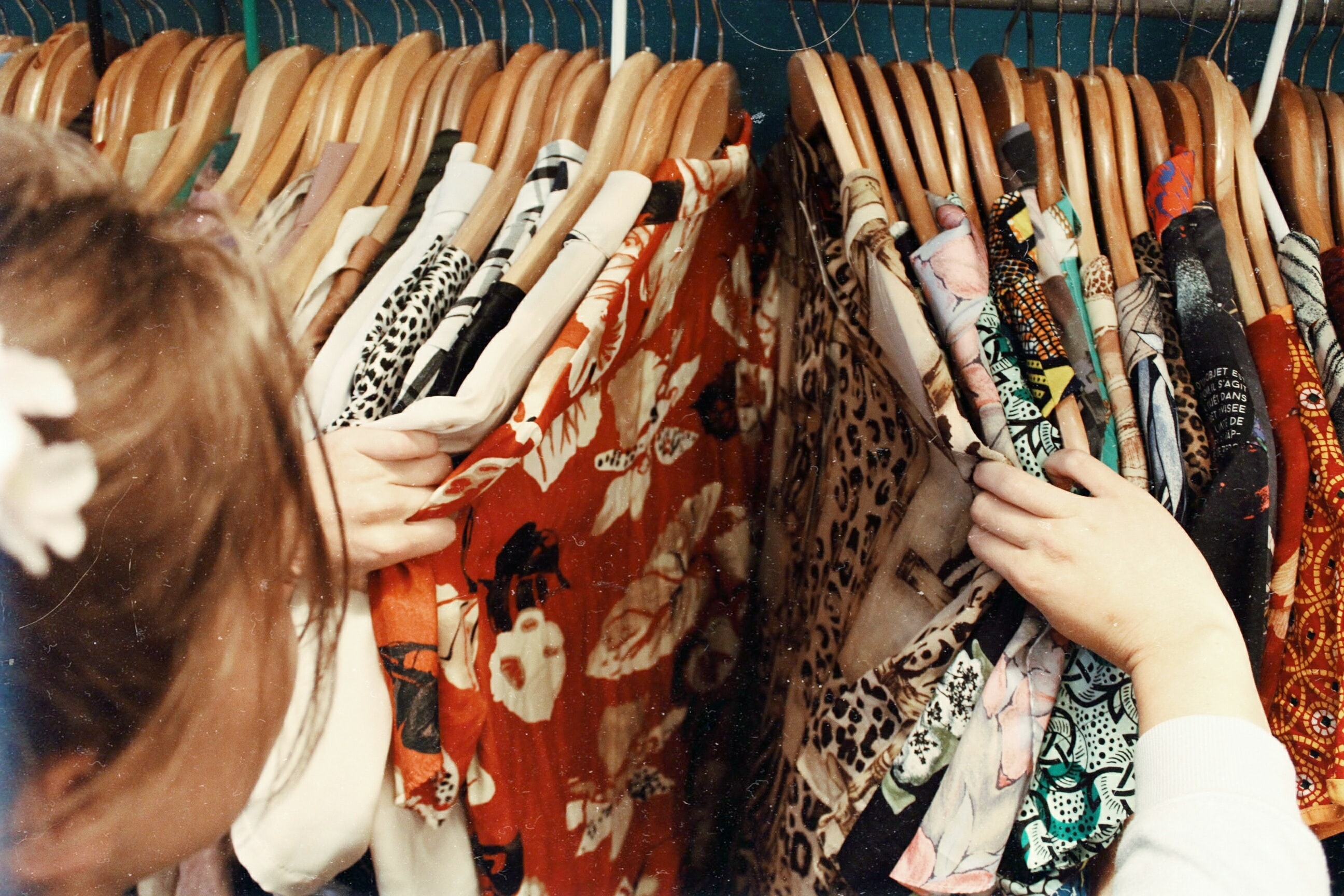
Personally, I have another favorite way to get clothing secondhand and it’s absolutely free! I let my friends, family, and coworkers (especially if I like their style) know that if they ever clean out their closet I will save them a trip to the donation center. I offer to come pick up the clothes they’re getting rid of, look through them, take what helps me feel cute and comfortable, and then bring the rest to the Goodwill, or better yet, my local homeless outreach ministry. You’d be surprised how often people take you up on this offer! Once people know you’re always on the lookout for secondhand clothing, they will think of you anytime they’re getting rid of something. I get “new” clothes every few weeks without spending a dime or setting foot in a store. I feel great about my body because I only keep what helps me feel cute and comfortable, and I feel even better knowing that my clothing choices didn’t support any harm to our planet or fashion industry workers. Win, win!
~Haley
Resources:
https://www.unboundnow.org/blog/fast-fashion-amp-labor-trafficking
https://goodonyou.eco/fast-fashions-environmental-impact/
May loving thoughts be with you and about you,
Miriam Jirari MPH, RD, CPT, Certified Intuitive Eating Counselor
Studio SWEAT Dietitian

Resources:
https://www.psychologytoday.com/us/basics/body-image
https://www.bing.com/search?q=body+image+positive+psychology&FORM=QSRE3
National Eating Disorders Collaboration
Worksheets:
https://www.nationaleatingdisorders.org/sites/default/files/BodyActivismGuideFINAL.pdf
https://positivepsychology.com/self-esteem-journal-prompts/
https://essentialboomer.guide/wp-content/uploads/2015/07/Positive-Affirmation-Worksheet.pdf
https://www.uhcl.edu/counseling-services/resources/documents/visualization-files/txt-guided-img-body-image.pdf





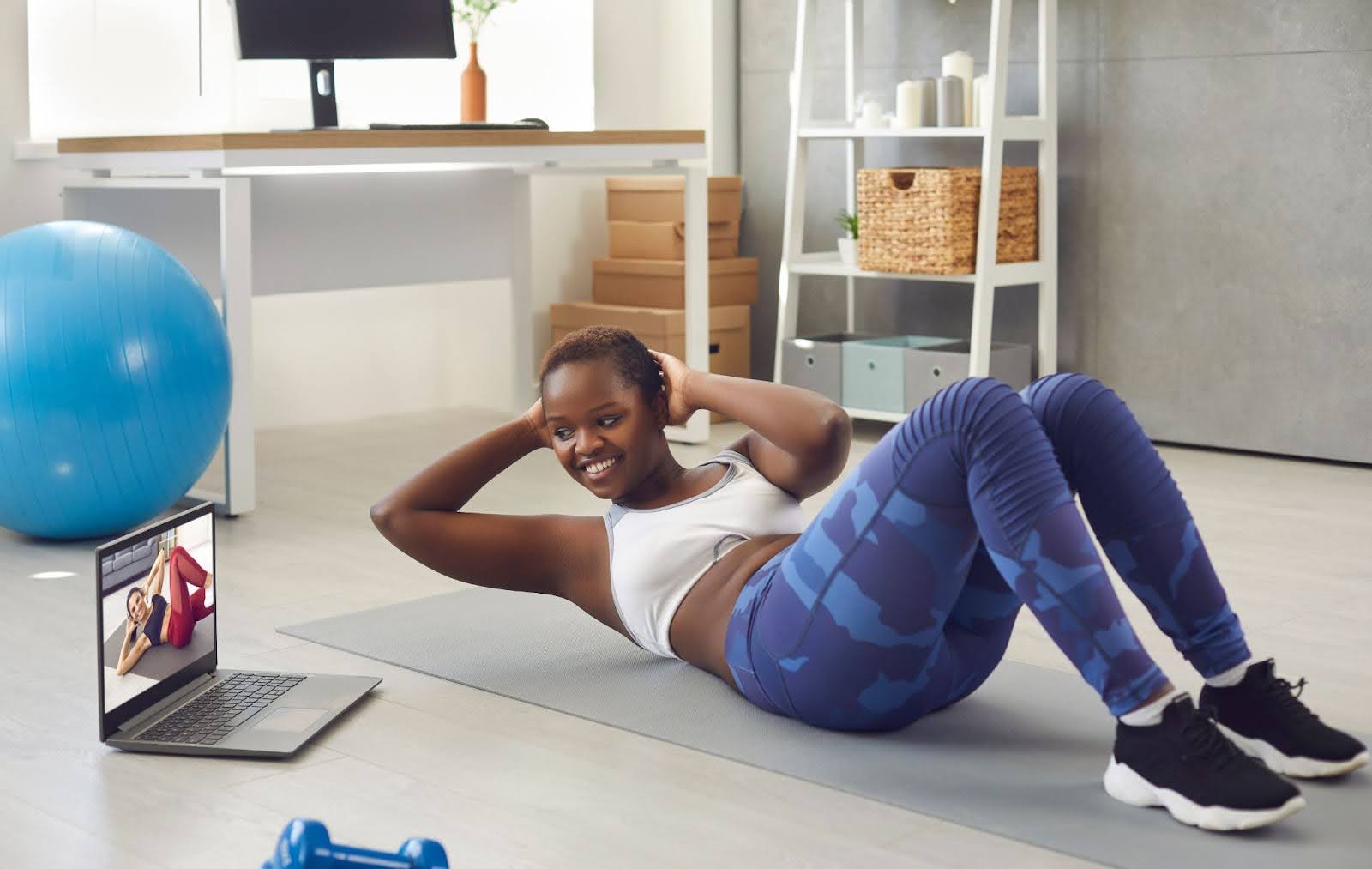




Comments - 0